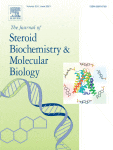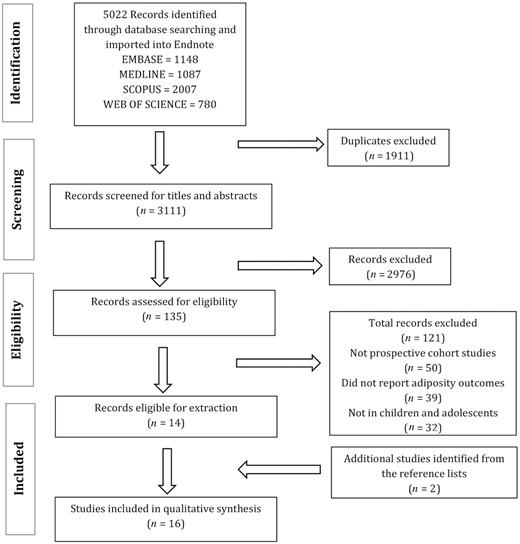Keep the butter on the bread, especially if you're a white dude!? A meta-analysis on the effects of low-fat diets on testosterone levels.

 www.sciencedirect.com
www.sciencedirect.com
The Journal of Steroid Biochemistry and Molecular Biology
Volume 210, June 2021, 105878
Low-fat diets and testosterone in men: Systematic review and meta-analysis of intervention studies
Joseph Whittakera Kexin Wub
Background
Higher endogenous testosterone levels are associated with reduced chronic disease risk and mortality. Since the mid-20th century, there have been significant changes in dietary patterns, and men’s testosterone levels have declined in western countries. Cross-sectional studies show inconsistent associations between fat intake and testosterone in men.
Methods
Studies eligible for inclusion were intervention studies, with minimal confounding variables, comparing the effect of low-fat vs high-fat diets on men’s sex hormones. 9 databases were searched from their inception to October 2020, yielding 6 eligible studies, with a total of 206 participants. Random effects meta-analyses were performed using Cochrane’s Review Manager software. Cochrane’s risk of bias tool was used for quality assessment.
Results
There were significant decreases in sex hormones on low-fat vs high-fat diets. Standardised mean differences with 95 % confidence intervals (CI) for outcomes were: total testosterone [−0.38 (95 % CI −0.75 to −0.01) P = 0.04]; free testosterone [−0.37 (95 % CI −0.63 to −0.11) P = 0.005]; urinary testosterone [−0.38 (CI 95 % −0.66 to −0.09) P = 0.009]; and dihydrotestosterone [−0.3 (CI 95 % −0.56 to −0.03) P = 0.03]. There were no significant differences for luteinising hormone or sex hormone binding globulin. Subgroup analysis for total testosterone, European and North American men, showed a stronger effect [−0.52 (95 % CI −0.75 to −0.3) P < 0.001].
Conclusions
Low-fat diets appear to decrease testosterone levels in men, but further randomised controlled trials are needed to confirm this effect. Men with European ancestry may experience a greater decrease in testosterone, in response to a low-fat diet.
-------------------------------------------------------------------------------------------------------------------------------
"The largest decreases in TT were seen in the 2 studies with vegetarian LF diets (Hill 1979; Hill 1980 NA) [44,49]. These diets may have been lower in zinc, which is a common feature of vegetarian diets [64], and marginal zinc deficiency has been found to decrease TT [32]. Nevertheless, studies well matched for micronutrient intake showed similar, albeit smaller changes in TT [45,48] (Fig. 2); suggesting the decrease in TT was mostly due to other dietary factors."
"Dietary fibre intake was likely higher on LF vs HF diets, which has been suggested to increase T excretion by modulating the enterohepatic circulation of steroids [25]. However, we found LH (P = 0.16) and UT excretion (P =0.009) decreased on LF diets, which suggests decreased T production rather than increased T excretion (Figs. 5 and 6)"
"The LF vs HF diets were consistently lower in monounsaturated fatty acids (MUFA) and saturated fatty acids (SFA), and had higher polyunsaturated to saturated fatty acid ratios (P:S). This suggests a beneficial effect of MUFA and SFA, and/or a deleterious effect of polyunsaturated fatty acids (PUFA) on androgens. (Seems this is slowly getting mainstream @haidut )"
High PUFA vs MUFA or SFA diets result in decreased T production via increased testicular oxidative stress, decreased steroidogenic enzymes and decreased testicular free cholesterol available for steroidogenesis [71,]

Low-fat diets and testosterone in men: Systematic review and meta-analysis of intervention studies
Higher endogenous testosterone levels are associated with reduced chronic disease risk and mortality. Since the mid-20th century, there have been sign…
The Journal of Steroid Biochemistry and Molecular Biology
Volume 210, June 2021, 105878
Low-fat diets and testosterone in men: Systematic review and meta-analysis of intervention studies
Joseph Whittakera Kexin Wub
Background
Higher endogenous testosterone levels are associated with reduced chronic disease risk and mortality. Since the mid-20th century, there have been significant changes in dietary patterns, and men’s testosterone levels have declined in western countries. Cross-sectional studies show inconsistent associations between fat intake and testosterone in men.
Methods
Studies eligible for inclusion were intervention studies, with minimal confounding variables, comparing the effect of low-fat vs high-fat diets on men’s sex hormones. 9 databases were searched from their inception to October 2020, yielding 6 eligible studies, with a total of 206 participants. Random effects meta-analyses were performed using Cochrane’s Review Manager software. Cochrane’s risk of bias tool was used for quality assessment.
Results
There were significant decreases in sex hormones on low-fat vs high-fat diets. Standardised mean differences with 95 % confidence intervals (CI) for outcomes were: total testosterone [−0.38 (95 % CI −0.75 to −0.01) P = 0.04]; free testosterone [−0.37 (95 % CI −0.63 to −0.11) P = 0.005]; urinary testosterone [−0.38 (CI 95 % −0.66 to −0.09) P = 0.009]; and dihydrotestosterone [−0.3 (CI 95 % −0.56 to −0.03) P = 0.03]. There were no significant differences for luteinising hormone or sex hormone binding globulin. Subgroup analysis for total testosterone, European and North American men, showed a stronger effect [−0.52 (95 % CI −0.75 to −0.3) P < 0.001].
Conclusions
Low-fat diets appear to decrease testosterone levels in men, but further randomised controlled trials are needed to confirm this effect. Men with European ancestry may experience a greater decrease in testosterone, in response to a low-fat diet.
-------------------------------------------------------------------------------------------------------------------------------
"The largest decreases in TT were seen in the 2 studies with vegetarian LF diets (Hill 1979; Hill 1980 NA) [44,49]. These diets may have been lower in zinc, which is a common feature of vegetarian diets [64], and marginal zinc deficiency has been found to decrease TT [32]. Nevertheless, studies well matched for micronutrient intake showed similar, albeit smaller changes in TT [45,48] (Fig. 2); suggesting the decrease in TT was mostly due to other dietary factors."
"Dietary fibre intake was likely higher on LF vs HF diets, which has been suggested to increase T excretion by modulating the enterohepatic circulation of steroids [25]. However, we found LH (P = 0.16) and UT excretion (P =0.009) decreased on LF diets, which suggests decreased T production rather than increased T excretion (Figs. 5 and 6)"
"The LF vs HF diets were consistently lower in monounsaturated fatty acids (MUFA) and saturated fatty acids (SFA), and had higher polyunsaturated to saturated fatty acid ratios (P:S). This suggests a beneficial effect of MUFA and SFA, and/or a deleterious effect of polyunsaturated fatty acids (PUFA) on androgens. (Seems this is slowly getting mainstream @haidut )"
High PUFA vs MUFA or SFA diets result in decreased T production via increased testicular oxidative stress, decreased steroidogenic enzymes and decreased testicular free cholesterol available for steroidogenesis [71,]


